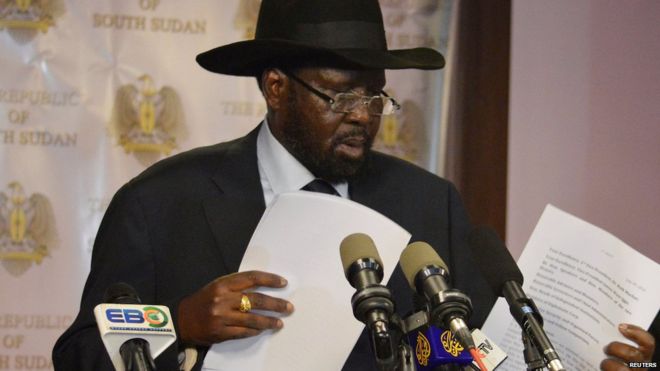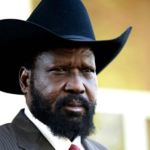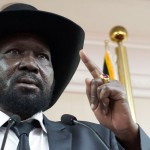A spokesman for South Sudan’s president has said a committee is looking at whether the war-torn country should add three or four more states to its current total of 28.
Ateny Wek Ateny said that a committee led by first vice president Taban Deng Gai was formed last week to study the issue, looking at whether to create one new state in Bahr el Ghazal, two in Upper Nile, and possibly one in Equatoria.
Ateny said the people, not President Salva Kiir, are asking for the new states because different ethnic groups have been contesting certain areas.
“In South Sudan, the creation of 28 states has brought jubilation, and has brought many people – not less than, more than – 80 percent of the people of South Sudan have appreciated the fact that the states were increased to 28,” said Ateny in a phone interview.
But many disagree with Ateny’s assessment, saying when Kiir took the unilateral move of increasing the number of states from 10 to 28 last year, he angered many, including opposition leader Riek Machar, who wanted 21 states.
And Cirino Hiteng, former deputy foreign minister of South Sudan, does not believe that another increase of states is going to solve the country’s problems, which include the ongoing conflict that has killed tens of thousands and displaced more than two million since December 2013, as well as annual inflation rate that has topped more than 600 percent.
University of Pretoria law professor and South Sudanese expatriate Remember Miamingi says Kiir’s move will increase conflict in the country. He argues that Kiir wants to increase the states in order to buy loyalty and support from those who will benefit from the corresponding new political jobs, albeit in a time of financial crisis.
“So it is a job creation, a job creation that has resource implications, and the little resources that we have, as you know, the government basically does not have the resources to finance the budget of this year,” said Miamingi. “And so to now create additional structures that demand money, is certainly quite unrealistic and is using, in an unfortunate way, public funding for personal and political reasons. And that is basically an abuse of his office.”
But Ateny disagrees with the idea that the president has sinister motivations behind the pending decision.
“But these are administrative units, that are to be created within the sitting government,” said Ateny. “There’s no reason why it is to be taken negatively.”
Kiir said last year that he acted within his mandate by increasing the number of states to 28. But Miamingi argued the president does not have the constitutional power of ‘altering the boundaries of the state’.
He also said there are two active cases in the Supreme Court of South Sudan that are challenging Kiir’s 2015 decision.







